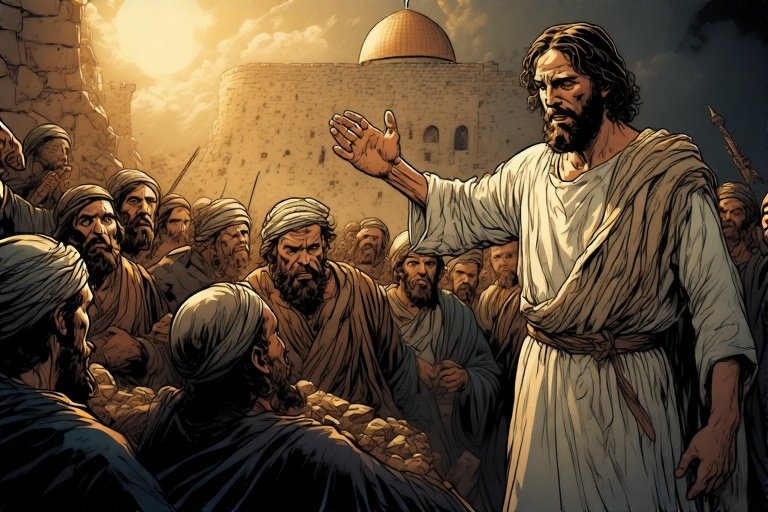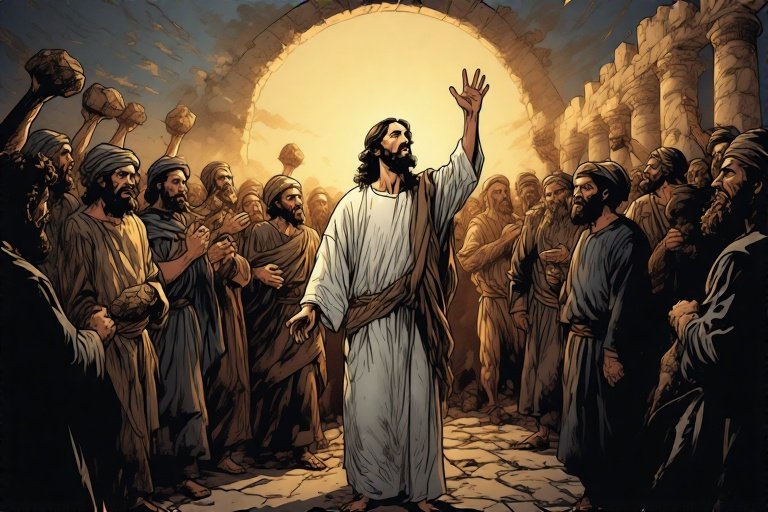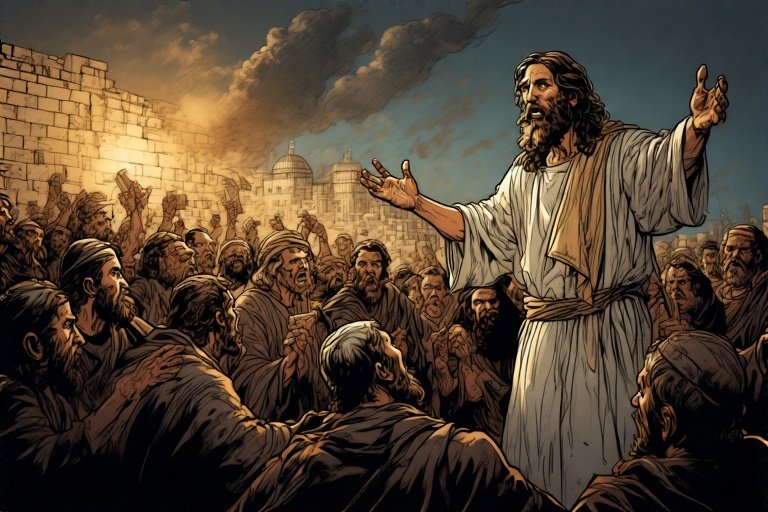Why Judaism and Christianity Don’t Hold Hands — And Never Did
Let’s rip the band-aid off: Christianity and Judaism aren’t two flavors of the same spiritual milkshake.
They’re not long-lost cousins.
They’re not “different paths to the same God.”
They’re two entirely different religions—and in many ways, they're opposed to each other like fire and water.
Or maybe more like the lion and the Pharisee.

Now, this might make some folks uncomfortable, especially those who like cozy phrases like Abrahamic faiths or Judeo-Christian values.
But let’s not hide behind buzzwords.
Let’s look at what Jesus actually said.
What He actually did.
And who actually wanted to kill Him for it.
Spoiler: it wasn’t the atheists.
“You Have Heard It Said...” (Brace Yourself)
Jesus didn’t come down from glory to give Judaism a fresh coat of paint. He came to demolish the old house and build something eternal.
In the Sermon on the Mount, He starts flipping tables—verbally at first:
“You have heard that it was said, ‘An eye for an eye and a tooth for a tooth.’
But I say to you…”
— Matthew 5:38–39
Hold up. That’s straight Torah talk He’s countering there.
That “eye for an eye” wasn’t a suggestion from a rogue rabbi—it was Mosaic Law.
And here’s Jesus saying: Yeah, no. Turn the other cheek instead.
This wasn’t a polite theological suggestion.
This was divine override.
Old system: retribution.
New system: forgiveness. Mosaic justice, meet Christ's mercy.
And that was just round one.
Love Your Enemies? That's Not Very Torah of You
Jesus doubled down like He wanted to get stoned. (Plot twist: they tried.)
“You have heard that it was said, ‘You shall love your neighbor and hate your enemy.’
But I say to you, love your enemies, bless those who curse you…”
— Matthew 5:43–44
Judaism often focused on group identity: protect your tribe, your kin, your covenant people.
Outsiders? Eh, depends on the season.
But Jesus says nope.
The Kingdom doesn’t draw boundary lines around ethnicity, nationality, or ancient customs.
The Kingdom loves its enemies.
Now, if you’re a first-century Pharisee hearing this... you’re already sharpening stones.
Sabbath Showdown: Healing vs. “You’re Not Supposed to Work Today”
Exodus 31:15 is crystal clear: work on the Sabbath and you die. That’s not hyperbole. That’s Torah Law.
So what does Jesus do? He picks the Sabbath, specifically, to start healing people. Over and over.
“For this reason the Jews tried all the harder to kill him… not only was he breaking the Sabbath, but he was even calling God his own Father.”
— John 5:18
Jesus wasn't being rebellious just to be edgy. He was proving a point: mercy > legalism. Always.
To the Jewish leaders, healing on the Sabbath was heresy. To Jesus, it was a glimpse of Heaven.
So when He calls Himself “Lord of the Sabbath,” He’s not just breaking a rule—He’s claiming the authority to rewrite it.
That’s either God speaking, or blasphemy of the highest order. There's no middle ground.
John 8: When Jesus Went Nuclear
Now, if you’re waiting for the moment things get tense—grab your popcorn and turn to John chapter 8.
The religious elite are puffed up, bragging about being descendants of Abraham. Then Jesus, calm as ever, says:
“If you were Abraham’s children, you would do the works of Abraham...
You are of your father the devil.”
— John 8:39–44
Yikes. Not exactly interfaith dialogue. Jesus didn’t say they were misguided. He said they were demonically aligned. That’s not a difference of opinion—that’s a battlefield.
This wasn't just a theological scuffle. This was the full unveiling: Truth Himself standing in front of the supposed experts of truth, calling them out for being murderers and liars.
The Cross Wasn’t a Surprise Ending
Let’s be brutally honest: Jesus didn’t die because
He was misunderstood.
He was killed because He was understood all too well.
“Then the chief priests and the Pharisees gathered a council and said, ‘If we let Him alone like this, everyone will believe in Him...’
From that day on they plotted to put Him to death.”
— John 11:47–53
The Romans drove the nails, sure.
But it was the religious leaders of Israel who engineered the betrayal, the arrest, the false charges.
They didn’t want a Messiah who healed on the Sabbath, who dined with sinners, who forgave prostitutes and called out temple corruption.
They wanted power. And they got it—briefly—until Resurrection Sunday.

So... Christianity an “Abrahamic Religion”? Not Exactly
A lot of modern theology tries to play nice and say, “Well, Christianity is rooted in Abraham too.”
Okay. Sort of. But when Jesus says:
“Before Abraham was, I AM.”
— John 8:58
...that should raise an eyebrow or two.
Jesus wasn’t claiming to be in Abraham’s lineage.
He was claiming to be eternal, pre-existent, and divine.
He made Abraham.
So how does that fit into a tidy “Abrahamic religion” box?
It doesn’t.
Christianity doesn’t descend from Abraham—it transcends him.

Final Thoughts: Let’s Stop Pretending
Christianity and Judaism don’t share the same core.
They don’t share the same center. One revolves around Christ.
The other explicitly rejects Him.
And that’s not a small difference—it’s the difference between life and death, between religion and redemption.
So next time someone throws around the term Judeo-Christian, you might gently—or not so gently—remind them:
“He who is not with Me is against Me.”
— Matthew 12:30
Jesus didn’t come to make Judaism better.
He came to replace it with Himself.
And that’s not interfaith dialogue.
That’s divine declaration.
